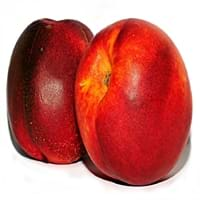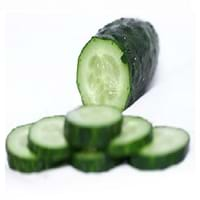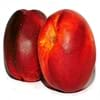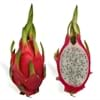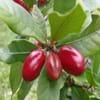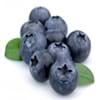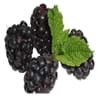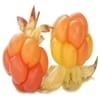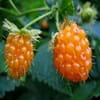Health Benefits
Cancer prevention, Heart care
Arthritis treatment, Cancer prevention, Eczema treatment, Increases metabolic rate, Kidney stone treatment, Prevents constipation, Removes toxic metals, Treatment of alzheimer's disease
General Benefits
Anti oxidant properties, Boosts immune system, Digestive aid, Eye care, Helps in weight loss, Maintains healthy cholesterol level
Anti oxidant properties, Anti-inflammatory properties, Controls blood pressure, Digestive aid, Strengthens bones, Treatment of sore eyes
Skin Benefits
Anti-aging benefits, Reduces wrinkles, Skin rejuvenation
Heals sunburn, Hydrates skin, Skin rejuvenation, Skin revitalization, Treatment of dark spots, Treatment of skin diseases
Hair Benefits
Protects hair
Promotes longer and healthier hair, Protects hair, Regulates hair growth, Shiny hair
Allergy Symptoms
Anaphylaxis, Asthma, Breathing difficulty, Diarrhea, Hives, Itching, Itchy eyes, Skin rash, Sneezing, Swelling of mouth, tongue or lips, Tingling sensation in mouth, Vomiting, Watery eyes, Wheezing
Breathing difficulty, Decrease in blood pressure, Diarrhea, Itching, Red rash, Runny nose, Sneezing, Vomiting, Watery eyes
Side Effects
Allergic reaction, Headache, Nausea
Stressed heart, Irritation, Swelling, Swelling around mouth, Throat swelling, Tongue swelling, Strained blood vessels
Lactating Women
Yes
Not Available
Best Time to Eat
Best if taken as a breakfast (or empty stomach), As a snack in the late afternoon, Eat the fresh ones, avoid mixing with any other foods, don't eat after meal., Morning time (before lunch)
Along with meal, As a snack in the late afternoon, Eat the fresh ones, avoid mixing with any other foods, don't eat after meal., Strictly avoid empty stomach
Vitamin B5 (Pantothenic Acid)
Vitamin C (Ascorbic Acid)
Vitamin K (Phyllochinone)
Phytosterol
Not Available
Calories in Fresh Fruit with Peel
Calories in Fresh Fruit without Peel
Not Available
Calories in Frozen Form
Not Available
Not Available
Calories in Dried Form
Not Available
Calories in Canned Form
Not Available
Not Available
Calories in Juice
Not Available
Calories in Jam
Not Available
Calories in Pie
Not Available
Type
Tree fruit
Fruit vegetable, Melon
Season
Autumn, Summer
Spring, Summer
Varieties
Arctic Jay, Artic Rose, Artic Star, Armking, Desert Dawn, Fairlane, Fantasia, Silver Lode, Snow Queen, Stanwick and Stark Sunglo
Armenian, English, Garden, Kirby, Lemon and Persian
Color
Orange, Pink, Red, Yellow
Dark green, Green
Inside Color
Yellow
White
Texture
Succulent
Crunchy
Taste
Sweet
Juicy, Watery
Soil Type
Sandy loam
Loam
Climatic Conditions
Sunny, Warm
Warm
Facts about
- The name ‘nectarine’ is with reference to the sweet food the gods eat, ‘nectar’.
- Nectarines are sometimes called ‘shaved peaches’ because their skin is smooth with no fuzz.
- Outer waxy coating of cucumber can erase the pen writing.
- Pressing cucumber on roof of mouth for 30 sec will eliminate bad breath.
- It is made up of 96% water.
- English cucumber can grow longer than 2 feet.
Spirits
Not Available
Yes
Other Countries
Argentina, Chile, Egypt, Greece, Iran, Italy, Spain, Turkey, United States of America
Egypt, Indonesia, Iran, Japan, Russia, Spain, Turkey, Ukraine, United States of America
Top Importer
Germany
France
Botanical Name
Prunus persica
Cucumis sativus
Synonym
Not Available
Not Available
Subkingdom
Tracheobionta
Tracheobionta
Division
Magnoliophyta
Magnoliophyta
Class
Magnoliopsida
Magnoliopsida
Subclass
Rosidae
Dillenhidae
Order
Rosales
Cucurbitales
Family
Rosaceae
Cucurbitaceae
Species
P. persica
C. sativus
Generic Group
Rose
Not Available
Compare Nectarine and Cucumber
It is important compare Nectarine and Cucumber as both the fruits have a different nutritional value. Their comparison can be done on the basis of their vitamin and mineral content, calories, benefits as well as characteristics, making it easier for us to choose the best fruit for our diet. Their general health benefits are as follows:
Nectarine Benefits: anti oxidant properties, boosts immune system, digestive aid, eye care, helps in weight loss and maintains healthy cholesterol level.
Cucumber Benefits: anti oxidant properties, anti-inflammatory properties, controls blood pressure, digestive aid, strengthens bones and treatment of sore eyes.
Fruits are also used as a remedy for various hair problems. The hair benefits of Nectarine are: protects hair and hair benefits of Cucumber are: promotes longer and healthier hair, protects hair, regulates hair growth and shiny hair. Some fruits are known to cause allergic reactions. The allergy symptoms of first fruit are: anaphylaxis, asthma, breathing difficulty, diarrhea, hives, itching, itchy eyes, skin rash, sneezing, swelling of mouth, tongue or lips, tingling sensation in mouth, vomiting, watery eyes and wheezing and the symptoms of second fruit are: breathing difficulty, decrease in blood pressure, diarrhea, itching, red rash, runny nose, sneezing, vomiting and watery eyes. Get sorted Nectarine vs Cucumber comparison with the help of fruit comparison tool by fruitvs.com.
